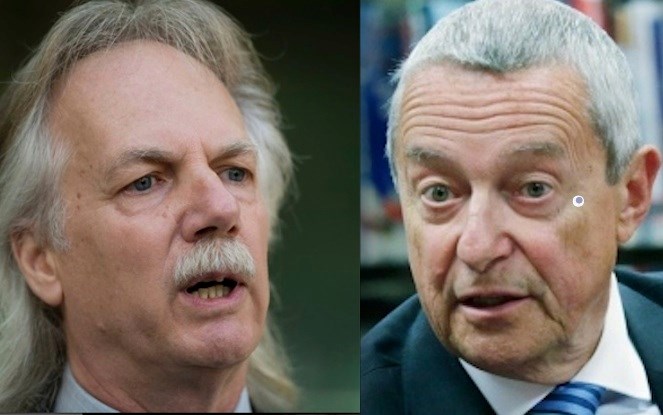 It’s been clear for months that the sides in the school strike are incapable of getting a deal done.
It’s been clear for months that the sides in the school strike are incapable of getting a deal done.
A third party of some sort is desperately needed to step in. A facilitator was on hand for months and couldn’t prompt any headway. Mediator Vince Ready spent a weekend on the impasse and walked away, electing to wait for the winds to change.
The next option is an arbitrator, but that requires mutual agreement from both sides, and only the B.C. Teachers’ Federation favours it at this point.
So the union executive’s decision to put the arbitration idea to the membership isn’t as dramatic as it sounds.
Teachers will vote Wednesday and soon after, the union will likely release results showing a huge majority of their membership support the idea of accepting arbitration.
But so what? It’s the other side that has to support the idea for it to work. And Education Minister Peter Fassbender said Monday: “It’s not in the cards, period.”
Wednesday’s vote is designed to be a retroactive ratification of a move that has already failed. The theoretical idea will likely be approved, but it’s simply not going to happen. If teachers reject it, the situation will get even worse. That would show the membership doesn’t want to concede any say on the sky-high wage package and could easily be taken as a non-confidence vote in the executive, which would lead to fresh chaos.
What they’re voting on is a carefully designed offer to hand off the wage and benefits argument to a third party. But the government side said there are time bombs buried in the concept that make it unworkable.
(As a measure of the hopelessness of this situation, there’s an entire side-argument about basic negotiating courtesies — such as writing down proposals — that are dropping off the table as fast as the lost days are piling up.)
The idea finally surfaced in written form on the BCTF website. And it’s not as simple and easy as union president Jim Iker seems to think it is.
The offer is to submit the arguments over salary, signing bonus, preparation time, some health benefits and substitute-teacher issues to binding arbitration.
The employer would have to agree to withdraw the now-notorious E80 proposal, which is read by the union as a bid to supersede all previous understandings on class size and composition, including two court decisions that handed the BCTF big wins on those issues.
That major and hugely expensive part of the argument would be taken off the table and left to the courts, where the two earlier decisions are being appealed. In the meantime, the BCTF wants a side-table talk about a new fund to address those issues, which would also go to arbitration if there’s no agreement.
From the union perspective, the government could agree and the schools would re-open immediately. Then teachers would vote on the arbitrator’s ruling (presumably in favour) while the size and composition talks continue.
But from the government’s side, it amounts to putting the whole argument to binding arbitration, just in stages.
Employers’ negotiator Peter Cameron briefed the government that dropping E80 proposals on class size and composition is contrary to the very court decision the union won. The judge ruled the old contract was retroactively valid from 2002 to the present, but not into the future: “Not clad in stone … will need to be the subject of ongoing collective bargaining.”
Fassbender said that proposal is being painted as a “sinister” ploy, when it’s simply an offer to negotiate while awaiting the appeal.
The government is exposed to huge costs due to the court decision — currently stayed — and its only hope is to finagle its way around the obligation until one and likely two appeals are heard.
So the union is proposing to vote on an idea that was dead on arrival Friday and is even more defunct now.
Fassbender’s bright idea of the day is to rejig the proposed vote and ask teachers to suspend the strike and go back to negotiating, which has accomplished nothing.
Hard to say which is the bigger waste of time.



